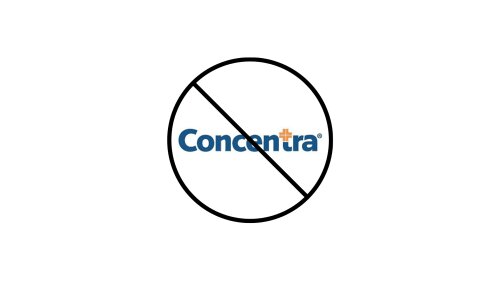Best Work Injury Lawyers in United States
Share your needs with us, get contacted by law firms.
Free. Takes 2 min.
Or refine your search by selecting a city:
List of the best lawyers in United States
About Work Injury Law in United States
Work injury law in the United States is primarily governed by workers’ compensation statutes, which are designed to help employees receive compensation for injuries sustained on the job without the need for litigation. These laws vary from state to state but generally provide medical benefits, income replacement, and rehabilitation support to injured workers. The overarching goal is to ensure that employees are fairly compensated while also protecting employers from lawsuits. Additionally, federal laws like the Occupational Safety and Health Act (OSHA) establish workplace safety standards to prevent injuries.
Why You May Need a Lawyer
Engaging a lawyer specializing in work injury law can be critical for several reasons. Common situations where legal help might be needed include disputes over whether an injury qualifies for workers’ compensation, denial of claims, inadequate settlement offers, employer retaliation for filing a claim, or situations where a third party’s negligence caused the injury. A skilled attorney can navigate these challenges, help maximize compensation, and ensure compliance with all necessary legal processes.
Local Laws Overview
Work injury laws can vary significantly by state, though there are some common elements. Every state has a workers’ compensation program, but the benefits and eligibility criteria differ. Some states have rigid guidelines on the filing deadlines, while others provide more flexibility. Furthermore, states may differ in terms of the benefits available, such as coverage for part-time workers or specific types of injuries. It’s crucial to understand the local laws in the state where the injury occurred to ensure proper legal handling.
Frequently Asked Questions
What should I do immediately after a work injury?
Report the injury to your employer as soon as possible and seek medical attention. Timely reporting is crucial for workers' compensation claims.
Am I eligible for workers' compensation even if I was at fault?
Yes, workers' compensation is typically a no-fault system, meaning you can receive benefits regardless of who caused the injury, unless it was intentional or due to intoxication.
What benefits are available under workers' compensation?
Benefits can include medical coverage, wage replacement, rehabilitation services, and compensation for permanent disabilities, depending on state laws.
Can I sue my employer for a work injury?
In most cases, workers’ compensation is the exclusive remedy, meaning you cannot sue your employer. However, exceptions exist, such as in cases of gross negligence.
What happens if my workers' compensation claim is denied?
If your claim is denied, you have the right to appeal the decision. Consulting with a work injury lawyer can help in understanding and navigating the appeal process.
How long do I have to file a workers' compensation claim?
Time limits, known as statutes of limitations, vary by state but generally range from one to three years from the date of injury. It’s important to act promptly.
What if my injury was due to a third party's negligence?
You may have a personal injury claim in addition to your workers' compensation claim. A lawyer can help assess and pursue this option.
Is it possible to receive compensation for pain and suffering?
Workers' compensation generally does not cover pain and suffering, but additional compensation may be recoverable through a third-party claim.
Can I be fired for filing a workers' compensation claim?
It is illegal for employers to retaliate against employees for filing a workers' compensation claim, including firing, demotion, or any form of discrimination.
Do I need a lawyer to handle my workers' compensation claim?
While not required, a lawyer can be invaluable in complex cases, especially if there are disputes, delays, or inadequate settlement offers.
Additional Resources
For more information and assistance, consider reaching out to:
- The U.S. Department of Labor, which provides resources on worker protection laws.
- Your state's labor or workers’ compensation board for localized guidance.
- Occupational Safety and Health Administration (OSHA) for workplace safety concerns.
- Legal aid organizations, which often offer free or reduced-cost services to those in need.
Next Steps
If you believe you need legal assistance with a work injury, start by gathering all relevant documents, such as medical records, accident reports, and any correspondence with your employer or insurance company. Schedule consultations with one or more work injury attorneys to discuss your case. Many attorneys offer free initial consultations and work on a contingency fee basis, meaning they are only paid if you win your case. Make sure to choose a lawyer with experience in work injury law and a good track record in handling similar cases.
Lawzana helps you find the best lawyers and law firms in United States through a curated and pre-screened list of qualified legal professionals. Our platform offers rankings and detailed profiles of attorneys and law firms, allowing you to compare based on practice areas, including Work Injury, experience, and client feedback.
Each profile includes a description of the firm's areas of practice, client reviews, team members and partners, year of establishment, spoken languages, office locations, contact information, social media presence, and any published articles or resources. Most firms on our platform speak English and are experienced in both local and international legal matters.
Get a quote from top-rated law firms in United States — quickly, securely, and without unnecessary hassle.
Disclaimer:
The information provided on this page is for general informational purposes only and does not constitute legal advice. While we strive to ensure the accuracy and relevance of the content, legal information may change over time, and interpretations of the law can vary. You should always consult with a qualified legal professional for advice specific to your situation.
We disclaim all liability for actions taken or not taken based on the content of this page. If you believe any information is incorrect or outdated, please contact us, and we will review and update it where appropriate.
Browse work injury law firms by state in United States
Refine your search by selecting a state.












